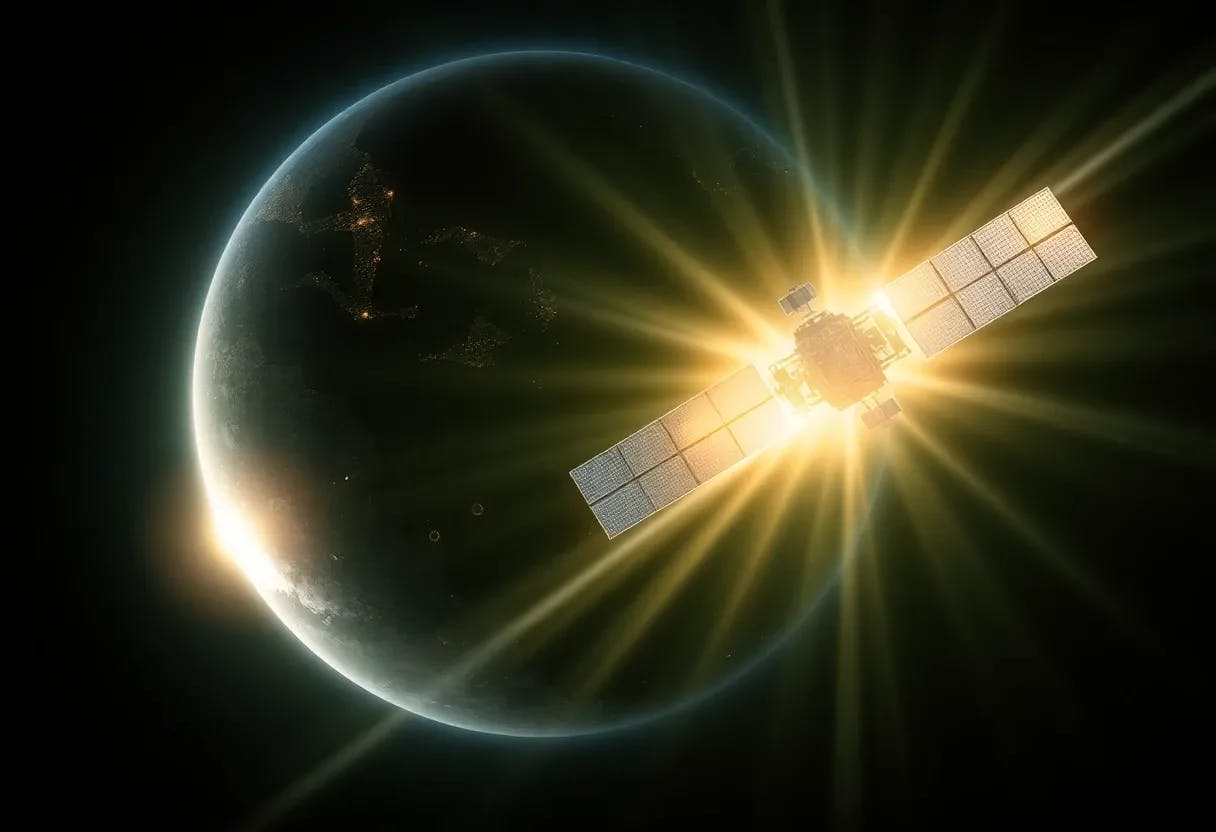Today’s internet is plagued with entrenched centralization and connectivity gaps. For instance, nearly one-third of the globe remains unconnected, and governments across the world block or slow online information. Such concentration creates an internet in centralized command – an issue Spacecoin is boldly determined to remedy. Let’s remind ourselves of some important issues with the current Internet before examining Spacecoin's solution:
- Huge Digital Divide: Hundreds of millions are offline. The number is estimated at
around 2.9–4 billion people who don't use the internet at all.The World Economic Forum reports that a 10% increase in internet penetration is enough to increase GDP in emerging markets by approximately 1.2%. Connectivity is an economic booster that many people lack. - Increasing Censorship and Control: Internet freedom is being lost. Freedom House documents that net freedom worldwide has fallen for the 12th consecutive year. Most governments utilize firewalls and blackouts (e.g. China's Great Firewall or sporadic Indian blackouts) in order to regulate or block online traffic. Under such governments, citizens are unable to access information or services in any consistent manner.
- Monopoly and Infrastructure Constraints: If the internet infrastructure expands with no competition, some suppliers end up with a monopoly. The result is the "excessive concentration of market power" that suppresses innovativeness. The large telecom or content firms can fix prices or disrupt services, and distant or rural locations are underserved because of reduced profits.
Impediments like who is in charge of the pipes and who can go online inevitably close off an open and universal Internet. Spacecoin's solution is the decentralization of physical infrastructures and economic management across networks.
A Satellite-Powered Decentralized Network
Spacecoin's fundamental concept is centered around building a Decentralized Physical Infrastructure Network (DePIN) in space. Rather than depend upon any government or company,
Key characteristics of Spacecoin's strategy are as follows:
-
Physical Decentralization: Through an array of LEO satellites, Spacecoin "eliminates the need to rely on central authorities". No single supplier (or government) can switch off the network. Spacecoin's press documents highlight the point that there will be no single entity that will govern the space-based network, so the system is censorship-resistant, per se.
-
Trustless Blockchain Infrastructure: Spacecoin employs smart contracts and blockchain (via a layer called Creditcoin) in order to govern the network. The satellite and data transaction are subject to
unambiguous on-chain rules . In practice, Spacecoin claims that its blockchain "ensures that no centralized agent governs the network… no telecom company nor any government will be able to censor or close it". Such a cryptographic trust layer means that the users don't need to rely on the central ISP in order to guarantee the service; the trust is in the protocol. -
Borderless, Crypto Transactions: Spacecoin envisions customers paying in cryptocurrency (its token and Creditcoin) in exchange for internet connectivity. These eliminate traditional finance and geopolitics-influenced limitations. In effect, anyone anywhere in the world with crypto wallet access can buy connectivity from the satellites themselves and bypass banks or local cash limitations. Spacecoin even envisions payment plans (buy-now-pay-later) so the service is within the capabilities of individuals in low-earning communities.
Such conditions in tandem would mean that Spacecoin's network would be open as well as permissionless. Anyone with the correct hardware or smartphone would be in a position to access the satellite signal, transact in cryptocurrency, and get online, without censored local backbones or DNS filtering.
Implementing the Vision: Direct Connectivity
Spacecoin is more than just theory; it has already launched its initial test satellite (CTC-0) in the latter part of 2024 and plans on launching several satellites in 2025 in order to increase the extent of the coverage. The satellites utilize the current 5G NTN (Non-Terrestrial Network) technology in order to provide direct-to-device internet. Essentially, Spacecoin's satellites can transmit services directly to smartphones or IoT devices without the presence of ground towers. The cost of laying out cables or constructing cell sites in mountainous terrain is thus eliminated. As the Spacecoin team highlights, satellite-based internet is readily available in the "remote and underserved areas where ground-based connectivity is inadequate".
For instance, Spacecoin intends initially to target growing markets such as some parts of Africa and Asia, which have billions of people with poor or no decent internet. By pricing at an inexpensive monthly fee (as low as $1-$2 per user), it makes connectivity an affordable commodity. Since the network is optimized end-to-end, specifically with blockchain in mind, new functionalities such as on-chain credit profiles should be able to bring even the unbanked online and create financial history.
Impact: Connecting the Unconnected
Spacecoin's mission is in keeping with an elegantly straightforward goal: universal access. The company's vision is always framed in terms of extending the original promise of the internet: open access, with no constraints, to everyone. The founder, Tae Oh, argues that the internet "has revolutionised every aspect of human life… yet billions remain disconnected. At Spacecoin, we're committed to change that".
By skipping physical and regulatory hurdles, Spacecoin would be able to significantly reduce the digital divide. As pointed out, bringing the additional 10% of the population online contributes measurable economic growth. The social benefits would translate into rural farmers, village schools, and beachside towns having access to schooling, markets, and world news. Under the decentralized control of the blockchain, such linkages would be immune to random censorship or monitoring – they would be in the possession of the end-users.
In simple terms, Spacecoin's decentralized satellite network would eliminate the final terrestrial monopoly over internet infrastructure. Through the combination of blockchain's trustless governance with an in-space 5G backbone, it would establish an entirely borderless internet. If realized, Spacecoin would bring the internet within the reach of everyone and render it immune to disruption, transforming existing "internet black holes" into nodes of unfettered communication. Through this vision, all of the Internet's fundamental challenges- unconnected populations, censorship, and monopolistic control- would be addressed, and maybe Spacecoin can bring us one step closer to a freer, more inclusive digital future.


